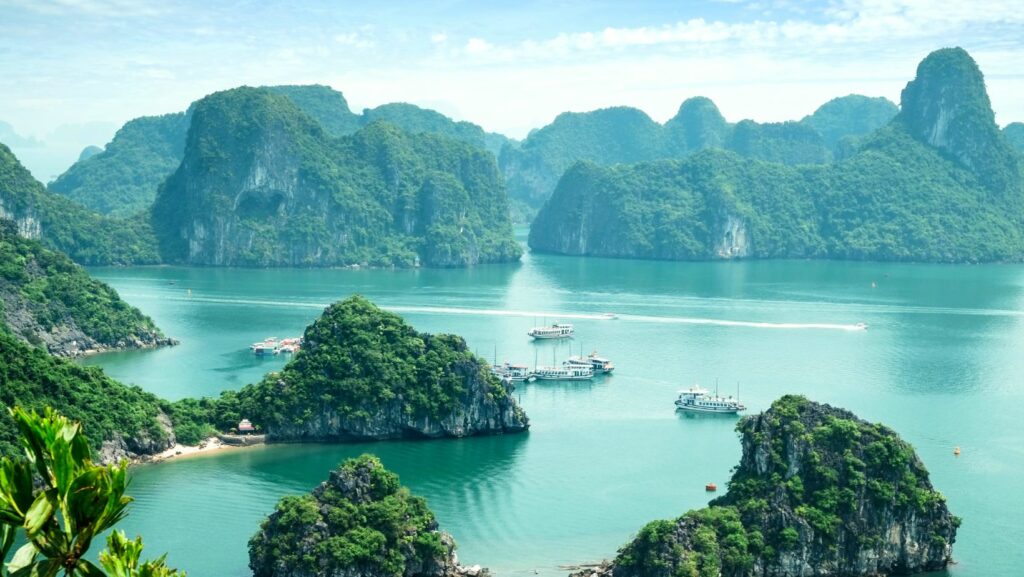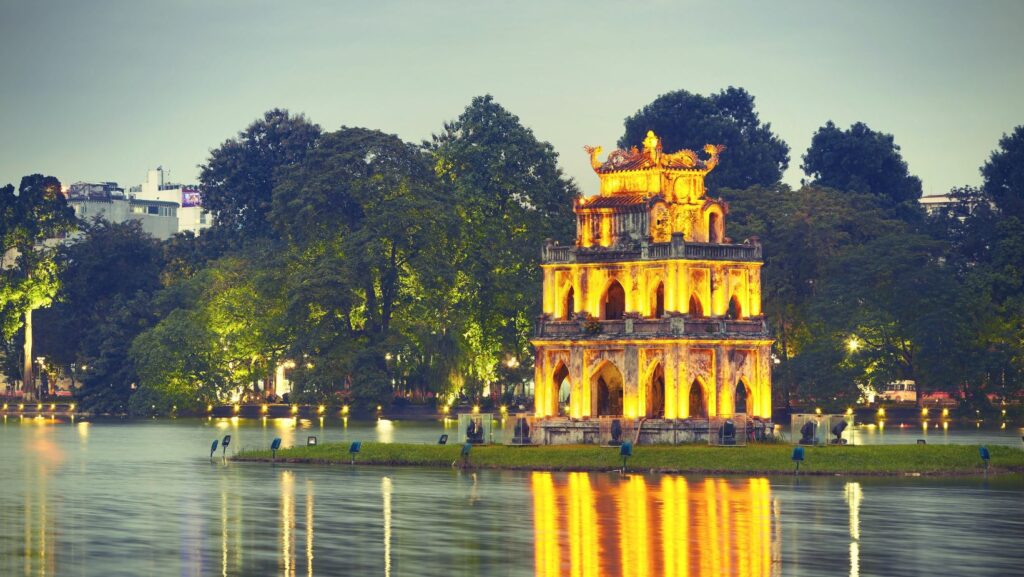
Retiring in Vietnam offers an enticing blend of vibrant culture, serene landscapes, and affordability that’s hard to match. Each year, more retirees are drawn to its welcoming shores, attracted by the promise of a comfortable lifestyle at a fraction of the cost compared to many Western countries. From bustling cities like Ho Chi Minh and Hanoi to tranquil beachfronts in Da Nang and Nha Trang, Vietnam presents a tapestry of experiences for every taste.
Retire in Vietnam
Vietnam has become a top choice for retirees seeking a vibrant, affordable lifestyle abroad. This section delves deeper into the cost-effective living, exemplary healthcare services, and the rich cultural tapestry that entices many to call Vietnam their new home.
Affordability of Living
 Retiring in Vietnam affords a cost-effective lifestyle that significantly extends the purchasing power of pensions. In major cities like Ho Chi Minh City and Hanoi, a retiree can live comfortably on a budget of $1,000 per month, which includes housing, utilities, and regular expenditures. Rent for a one-bedroom apartment in city centers runs approximately $500 per month, while outside city centers, the cost drops to about $350. Dining out remains inexpensive; for instance, a meal at an inexpensive restaurant costs around $2-$5. Such affordability not only ensures a comfortable living standard but also provides ample budget for leisure and travel within the country.
Retiring in Vietnam affords a cost-effective lifestyle that significantly extends the purchasing power of pensions. In major cities like Ho Chi Minh City and Hanoi, a retiree can live comfortably on a budget of $1,000 per month, which includes housing, utilities, and regular expenditures. Rent for a one-bedroom apartment in city centers runs approximately $500 per month, while outside city centers, the cost drops to about $350. Dining out remains inexpensive; for instance, a meal at an inexpensive restaurant costs around $2-$5. Such affordability not only ensures a comfortable living standard but also provides ample budget for leisure and travel within the country.
Healthcare Services
Healthcare in Vietnam has seen substantial improvements, making it a reliable option for retirees. The cities boast a number of international hospitals that provide quality medical care with English-speaking staff. Annual health insurance plans are cost-effective, averaging around $500, a fraction of what one might pay in the U.S. for comparable coverage.
Preparing for Retirement in Vietnam
Visa and Residency Requirements
 Retirees looking to settle in Vietnam must first be aware of the visa and residency regulations. Initially, expats typically enter Vietnam on a tourist visa, which can be extended for short periods. For a longer stay, securing a Temporary Resident Card (TRC), valid for one to three years and renewable, is essential. The TRC requires sponsorship from a Vietnamese entity, which can be an employer or a family member. Permanent Residency Cards are also available, though they involve more stringent requirements including proof of financial investment or a history of contributing to the country’s socio-economic development.
Retirees looking to settle in Vietnam must first be aware of the visa and residency regulations. Initially, expats typically enter Vietnam on a tourist visa, which can be extended for short periods. For a longer stay, securing a Temporary Resident Card (TRC), valid for one to three years and renewable, is essential. The TRC requires sponsorship from a Vietnamese entity, which can be an employer or a family member. Permanent Residency Cards are also available, though they involve more stringent requirements including proof of financial investment or a history of contributing to the country’s socio-economic development.
Financial Planning
Financial planning is crucial for a comfortable retirement in Vietnam. Retirees should start by establishing a realistic monthly budget, considering their lifestyle preferences and health needs. Those planning to retire in Vietnam should ensure their income streams, such as pensions or savings, are internationally accessible and possibly subject to currency fluctuations. It’s advisable to consult with a financial advisor who understands international finance to manage assets effectively and navigate the tax implications. Opening a local bank account can simplify daily transactions and help manage living expenses more efficiently.
Best Places to Retire in Vietnam
Hoi An
 Hoi An shines as a prime choice for retirees who seek a slow-paced lifestyle. This ancient town is known for its well-preserved architecture, vibrant lantern-lit streets, and friendly local community. It also offers a milder climate with less humidity compared to other regions. Retirees find the town’s close-knit community appealing, enabling them to blend in seamlessly with the cultural festivities and weekly markets. The cost of living here remains low, with options for renting cozy homes or villas by the river.
Hoi An shines as a prime choice for retirees who seek a slow-paced lifestyle. This ancient town is known for its well-preserved architecture, vibrant lantern-lit streets, and friendly local community. It also offers a milder climate with less humidity compared to other regions. Retirees find the town’s close-knit community appealing, enabling them to blend in seamlessly with the cultural festivities and weekly markets. The cost of living here remains low, with options for renting cozy homes or villas by the river.
Da Lat
Da Lat appeals to those looking for a cooler climate in a mountainous setting. Nestled in the Central Highlands, it is often referred to as the “City of Eternal Spring.” Its temperate weather makes it a wonderful choice for retirees who want to escape the tropical heat. The city is famous for its French colonial architecture, sprawling gardens, and extensive flower farms. Retirees can enjoy peaceful walks along scenic trails or appreciate the serene atmosphere of Lake Xuan Huong.
Nha Trang
If a beachfront lifestyle is a priority, Nha Trang offers an idyllic setting along Vietnam’s south-central coast. This resort city is known for its pristine beaches, clear ocean waters, and vibrant nightlife. It is also a hub for excellent seafood cuisine. Nha Trang provides a balance between leisure and convenience, with modern amenities readily available.


